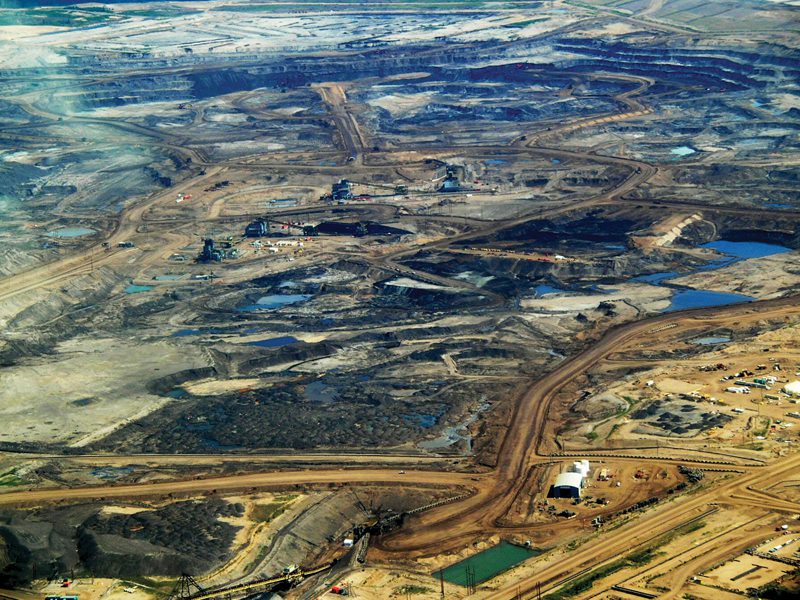Oil companies are finally admitting that Canada’s tar sands are not the golden goose that they’ve been made out to be. In recent years, 17 projects were put on hold or cancelled due to lower oil prices. And this week, Exxon announced that it can no longer profitably develop up to 3.6 billion barrels of its Alberta tar sands reserves unless oil prices rise. That’s 3.6 billion barrels of oil that will be left in the ground.
The simple fact is that the tar sands are some of the highest cost, and highest carbon oil reserves in the world. And in a world that’s getting off of oil – which is necessary to deal with climate change – it’s the high cost and high carbon reserves that are the first on the chopping block.
“For a lot of reasons the oil sands look like a prime candidate for eventual abandonment,” Baker Institute energy fellow Jim Krane told the Wall Street Journal, who broke the story about Exxon. “One problem is that costs are persistently higher. The high carbon content only makes it worse.”
Exxon’s decision didn’t come lightly. The company has spent $20 billion in an effort to make the tar sands the centre of its expansion plans. Exxon only admitted that their tar sands plan isn’t panning out due to an investigation by the U.S. Securities and Exchange Commission, who questioned Exxon’s assessment of the value of their oil reserves, given the lower price for oil.
But Exxon’s decision should be a wake up call. It should tell us that we need to plan for the managed decline of the tar sands. And Exxon’s $20 billion dollar mistake should serve as a cautionary tale and prompt a rethink of plans to invest in new projects and infrastructure like pipelines.
Prime Minister Justin Trudeau was right when he recently said that “We can’t shut down the oil sands tomorrow. We need to phase them out. We need to manage the transition off our dependence on fossil fuels.”
The prime minister backed away from these comments because of a backlash in Alberta. But if the politics of oil make it too challenging to talk about a transition away from oil, perhaps the economics of oil in the age of climate change will provoke the conversation that we need to have.
A managed and just transition to a cleaner economic future is in the best interests of Canadians and Albertans, for the sake of our environment and our economy. Because change is coming, as Exxon’s announcement shows, and an unmanaged transition is painful, as Albertans know all too well.








